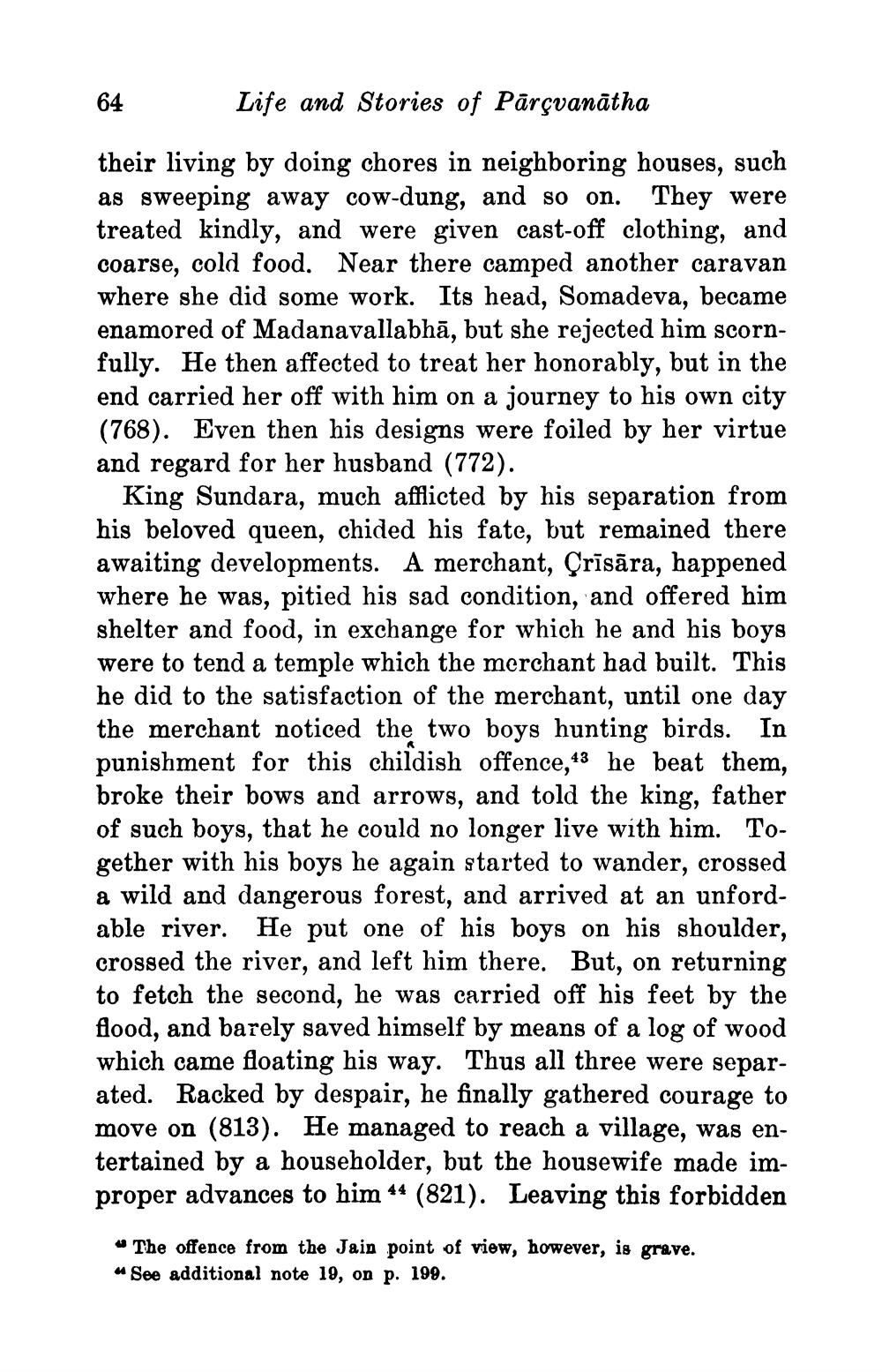________________
64
Life and Stories of Pārçvanātha
their living by doing chores in neighboring houses, such as sweeping away cow-dung, and so on. They were treated kindly, and were given cast-off clothing, and coarse, cold food. Near there camped another caravan where she did some work. Its head, Somadeva, became enamored of Madanavallabhā, but she rejected him scornfully. He then affected to treat her honorably, but in the end carried her off with him on a journey to his own city (768). Even then his designs were foiled by her virtue and regard for her husband (772).
King Sundara, much afflicted by his separation from his beloved queen, chided his fate, but remained there awaiting developments. A merchant, Crīsāra, happened where he was, pitied his sad condition, and offered him shelter and food, in exchange for which he and his boys were to tend a temple which the merchant had built. This he did to the satisfaction of the merchant, until one day the merchant noticed the two boys hunting birds. In punishment for this childish offence, 43 he beat them, broke their bows and arrows, and told the king, father of such boys, that he could no longer live with him. Together with his boys he again started to wander, crossed a wild and dangerous forest, and arrived at an unfordable river. He put one of his boys on his shoulder, crossed the river, and left him there. But, on returning to fetch the second, he was carried off his feet by the flood, and barely saved himself by means of a log of wood which came floating his way. Thus all three were separated. Racked by despair, he finally gathered courage to move on (813). He managed to reach a village, was entertained by a householder, but the housewife made improper advances to him 44 (821). Leaving this forbidden
"The offence from the Jain point of view, however, is grave.
See additional note 19, on p. 199.




